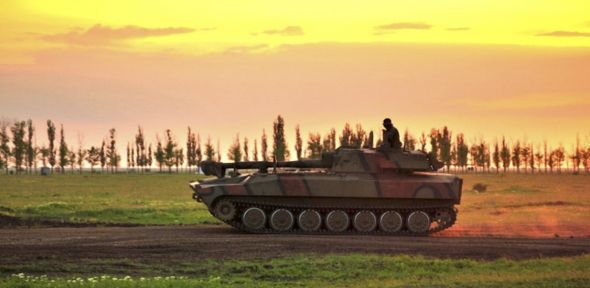
On 4 December 2017 Cambridge Ukrainian Studies and the Centre for Research in the Arts, Social Sciences and Humanities (CRASSH) host the international conference Ukraine and the Challenges of International Law: Annexation, Aggression, Cyber Warfare. CRASSH asks us five questions about this special event. What is the conference about? Our conference will address the crises in Ukraine and the major implications that they have had for international law. By crises, we mean the developments that have taken place in the wake of Russian aggression on the territory of Ukraine since February 2014: the annexation of Crimea, the war in eastern Ukraine, and cyber attacks against Ukraine’s infrastructure. What are the big questions addressed by this conference? Our conference is multidisciplinary. We bring together scholars, international lawyers, civic activists, and practitioners in an attempt to answer these critical questions: How can international law help us make sense of the developments in Ukraine since February 2014? What language can and must we use in our discussions of these developments? How have these crises, in their turn, affected the system of international law itself? We approach these pressing issues in a comprehensive way. We do not treat the conditions in Crimea, eastern Ukraine, and the cyber sphere as separate, unrelated events. They are inextricably linked. What is more, they bear consequences for the entire European continent. To whom will it be of interest? We enthusiastically welcome students, scholars, and members of the general public alike. Whether you are interested in international relations or cyber security, international law or war studies, Slavonic studies or information policy, the conference promises to offer stimulating debate and rich, provocative food for thought. Our panels will be urgent discussions of some of the most crucial issues of our time: disinformation, cyber terrorism, ‘hybrid’ war. Who are the speakers? What can delegates expect from the conference? Our speakers are a diverse, distinguished group of experienced practitioners and leading scholars from around the world. They include, for instance, the President of the European Committee for the Prevention of Torture as well as the Deputy Minister for Information Policy of Ukraine. You can read more about the panelists here. How did this conference come about? More than three years on, the ‘frozen’ conflict in Crimea and the ongoing ‘hot’ war in eastern Ukraine have become dangerously normalised. We in the Cambridge Ukrainian Studies community reject this ‘new normal’. While they may have disappeared from news headlines in Great Britain, the crises in Ukraine remain a major threat to European and global security. They have lasting implications for international law. We seek to return a purposeful focus to these crises and, moreover, to learn more broadly from them. Further information:
- To register for and learn more about the conference, please click here.
- Stay in touch with Cambridge Ukrainian Studies by visiting us on Facebook and Twitter.
- If you have any additional questions, please contact conference co-organiser Bohdan Tokarskyi.




